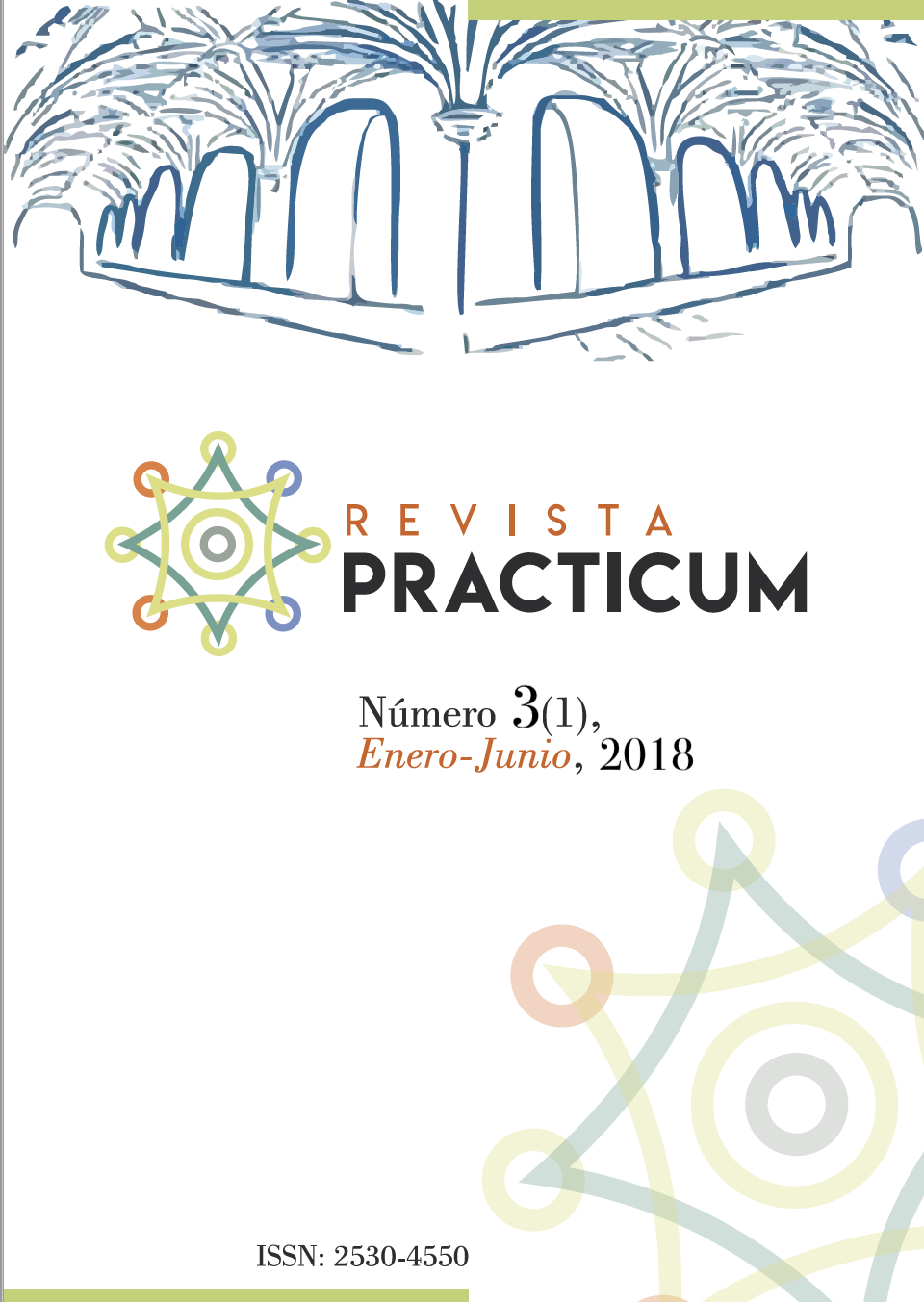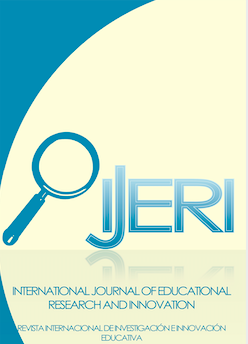The tutor of practices and his professionals influence in the Education Degrees
DOI:
https://doi.org/10.24310/RevPracticumrep.v3i1.8273Keywords:
Tutor, Professional competences, Educational quality, Inclusive society, PracticumAbstract
Nowadays, educational problems are a fundamental issue of social reflection, so it is essential to develop the knowledge and achieve an obligatory education of quality which guarantees the human rights, gender equality, promotion of a culture of peace and no violence, a global citizenship, and the appreciation of the cultural diversity and the contribution of the culture to the sustainable development. All these things re-quire an important change in the pre-service and in-service training, with values and an intelligent task. This research has been developed in the Education Degrees of the Education Faculty, UNED Associate Center of Albacete, 2015-16 and 2016-17 courses. The main objective has been focused to the support and strengthening of teaching, to optimize the formation of teachers, Pedagogues, and Social Educators, and to enrich them with the contributions and improvement evaluations made by all people involved in the training process (students, collaborators, faculties, institutions, etc.). The results show that tutors (collaborating professionals) value the usefulness of the professional practices in the Degrees, considering that they are essential, to get an approach and to provide a learning that is not only produced in the Faculty on a theoretical level but also in a practical level. Related to the duration of the period of practices, it is valued that it should be extended. The most meaningful conclusion, we can highlight the lack of con - sideration and academic acknowledgement of the Practicum, as well as the insufficient link between theory and practice, in the formation of the studied professionals and the underlined aspects by all the participants in the research.Downloads
Metrics
Publication Facts
Reviewer profiles N/A
Author statements
Indexed in
-
—
- Academic society
- N/A
- Publisher
- Universidad de Málaga
References
ANECA (2005). Libro Blanco de los títulos de grado en Pedagogía, Magisterio y Educa-ción Social. Madrid: ANECA. http://www.aneca.es/Documentos-y-publicaciones/Libros-Blancos
Barceló, Mª L., & Ruiz-Corbella, M. (2015). Análisis de las competencias profesionales del Maestro de Educación Primaria. Estudio de Caso. En Mª A. Murga y Mª Paz Trillo (Coord.), Perspectivas y avances de la investigación (pp.35-52). Madrid: UNED.
Campbell, D.T., & Stanley, J.C. (1978). Diseños experimentales y cuasiexperimentales en la investigación social. Buenos Aires: Amorrortu.
Cantón, I., Cañón, R., & Arias, A. (2013). La formación universitaria de los maestros de Educación Primaria. Revista interuniversitaria de Formación del Profesorado, 76 (27,1), 45-63.
Cortina, A. (2017). Ciudadanía europea y multiculturalidad. En V. Climent, F. Michavila, y M. Ripollés (Coord.), Los males de la Europa Social. Buscando soluciones (pp. 191-206). Madrid: Tecnos.
De Lara, E., & Quintanal, J. (Coord.) (2006). El Prácticum en las titulaciones de Educa-ción: Reflexiones y experiencias. Madrid: Dykinson.
Domínguez, J., Álvarez, E., & López, A. (2017). La violencia escolar en la Educación Se-cundaria Obligatoria desde la perspectiva del alumnado gallego. Journal of Psychology and Education, 12(2), 95-104. doi: https://doi.org/10.23923/rpye2017.12.148
González, H., Álvarez, J.L., & Fernández, G. (2012). Fundamentando la formación de los educadores profesionales en competencias interculturales. Bordón. Revista de Pe-dagogía, 64(1), 89-107.
Guba. E.G. (1989). Criterios de credibilidad en la investigación naturalista. En J. Gi-meno y A.I. Pérez Gómez (Eds.), La enseñanza: su teoría y su práctica (pp.148-165). Madrid: Akal.
Juliá, J. (2017). Universidad y economía del conocimiento: dualidad Norte-Sur. En V. Climent, F. Michavila, y M. Ripollés (Coord.), Los males de la Europa Social. Buscando soluciones (pp.243-251). Madrid: Tecnos.
Palomares, A. (2007). Nuevos retos educativos. El modelo docente en el espacio euro-peo. Cuenca: Universidad de Castilla-La Mancha.
Palomares, A. (2013). La interacción entre utopía y desencanto para una educación de calidad. En Varios, Conversaciones con un Maestro. Homenaje al profesor Dr. José Luis García Garrido (pp.519-526). Madrid: UNED/E. Académicas.
Palomares, A. (2014). Innovative methodologies to promote teacher’s emotional com-petences. Journal for Educators, Teachers and Trainers, 5(2), 116-129.
Palomares, A. & Serrano, I. (2016). Influencia de las Competencias Emocionales y la Financiera en la Formación Universitaria. Revista Formación Universitaria, 9 (5), 25-36. doi: 10.4067/S0718-50062016000500004
Pérez Gómez, A.I. (2003). Más allá del academicismo. Los desafíos de la Escuela en la era de la información y la perplejidad. Málaga: Servicio de Publicaciones de la Univer-sidad.
UNESCO (1998). La educación Superior en el Siglo XXI: Visión y Acción. Conferencia Mundial sobre educación Superior. París, 5-9 de octubre.
UNESCO (2017). Educación 2030. Declaración de Incheon y Marco de Acción para la realización del Objetivo de Desarrollo Sostenible 4. Paris: UNESCO. Recuperado de https://goo.gl/gFt5zm
Downloads
Published
How to Cite
Issue
Section
License
Acceptance of the work implies that the author grants Revista Prácticum the exclusive rights to reproduce, distribute and sell his or her work worldwide, both in digital and paper formats, CD-ROM, etc.
Likewise, the authors shall grant Revista Prácticum the rights of dissemination, public communication on the Internet and IT networks, data buses, as well as any other portals or electronic devices for online consultation of its contents and extracts, under the conditions of the portal, repositories or databases where the work is stored.
Revista Prácticum allows authors to publish and disseminate their articles and works on their personal websites, research teams, institutional repositories and scientific databases. All this in accordance with the Creative Commons 4.0 License










8.png)








